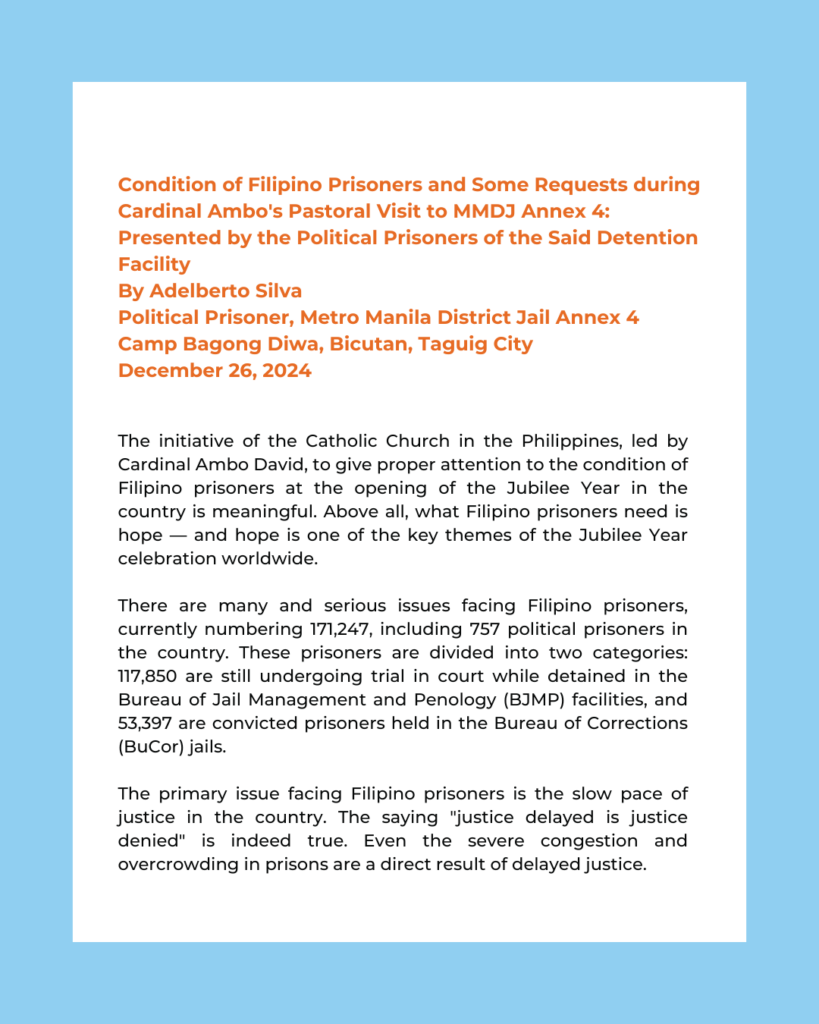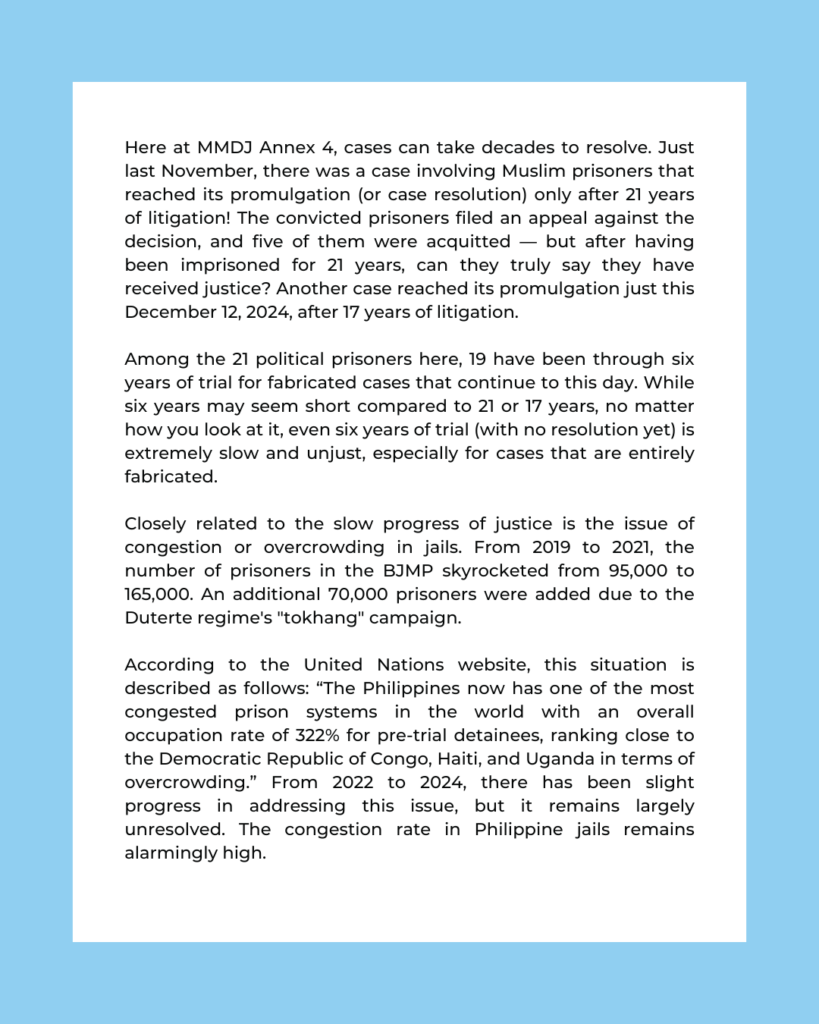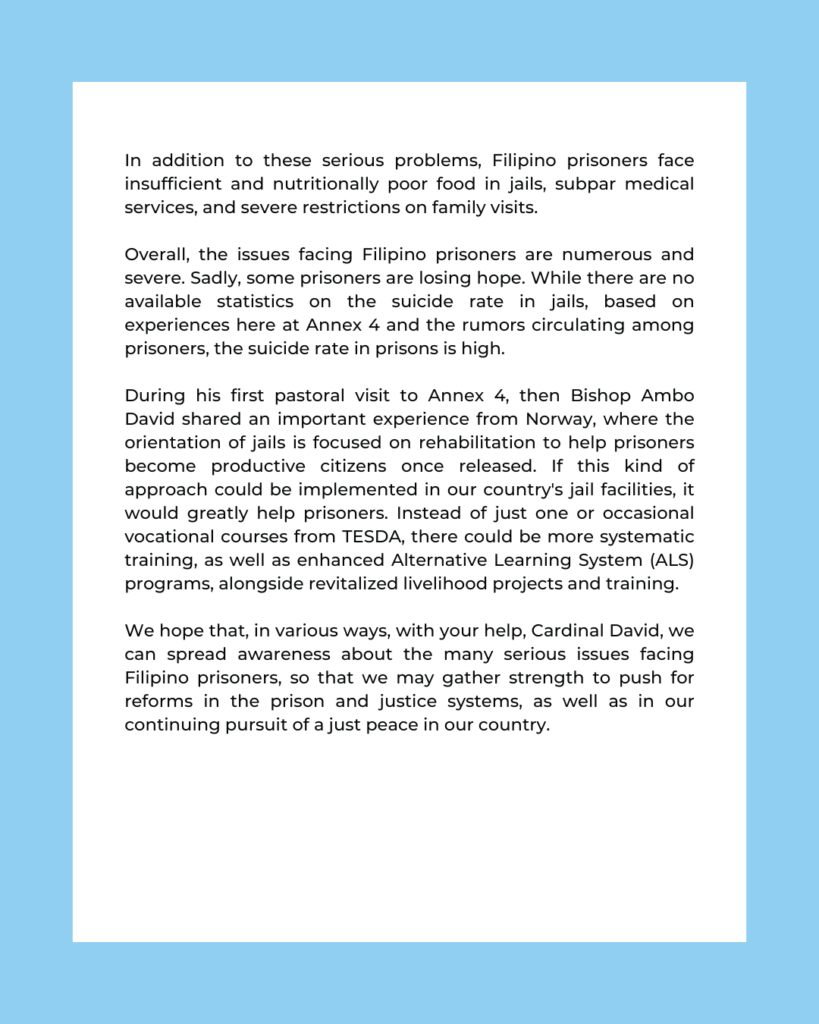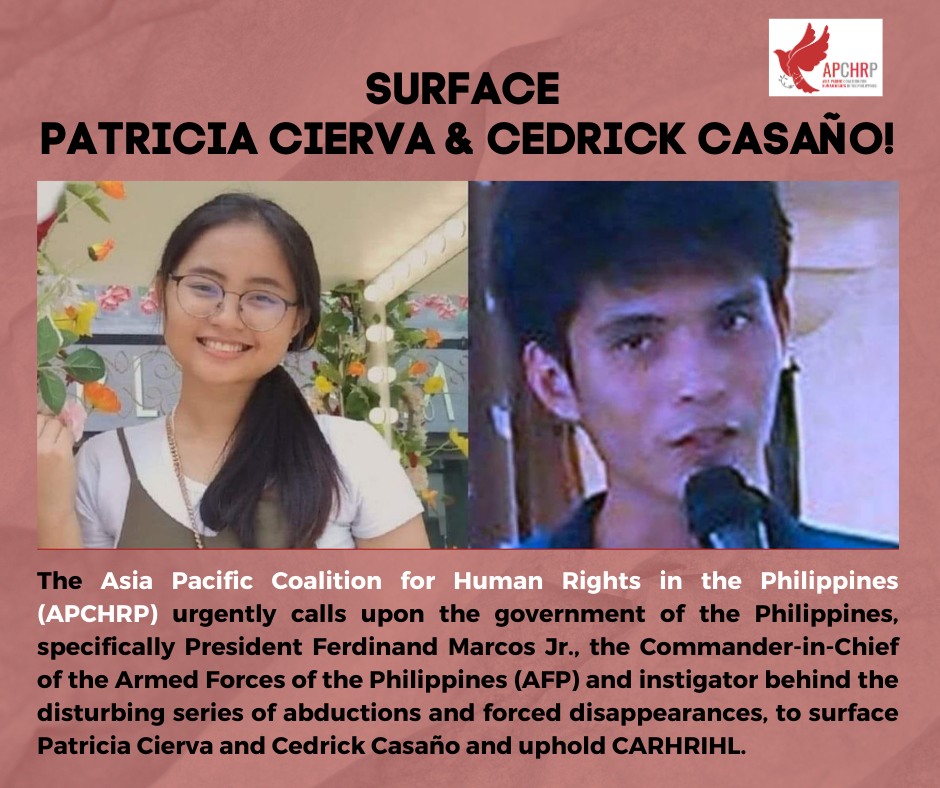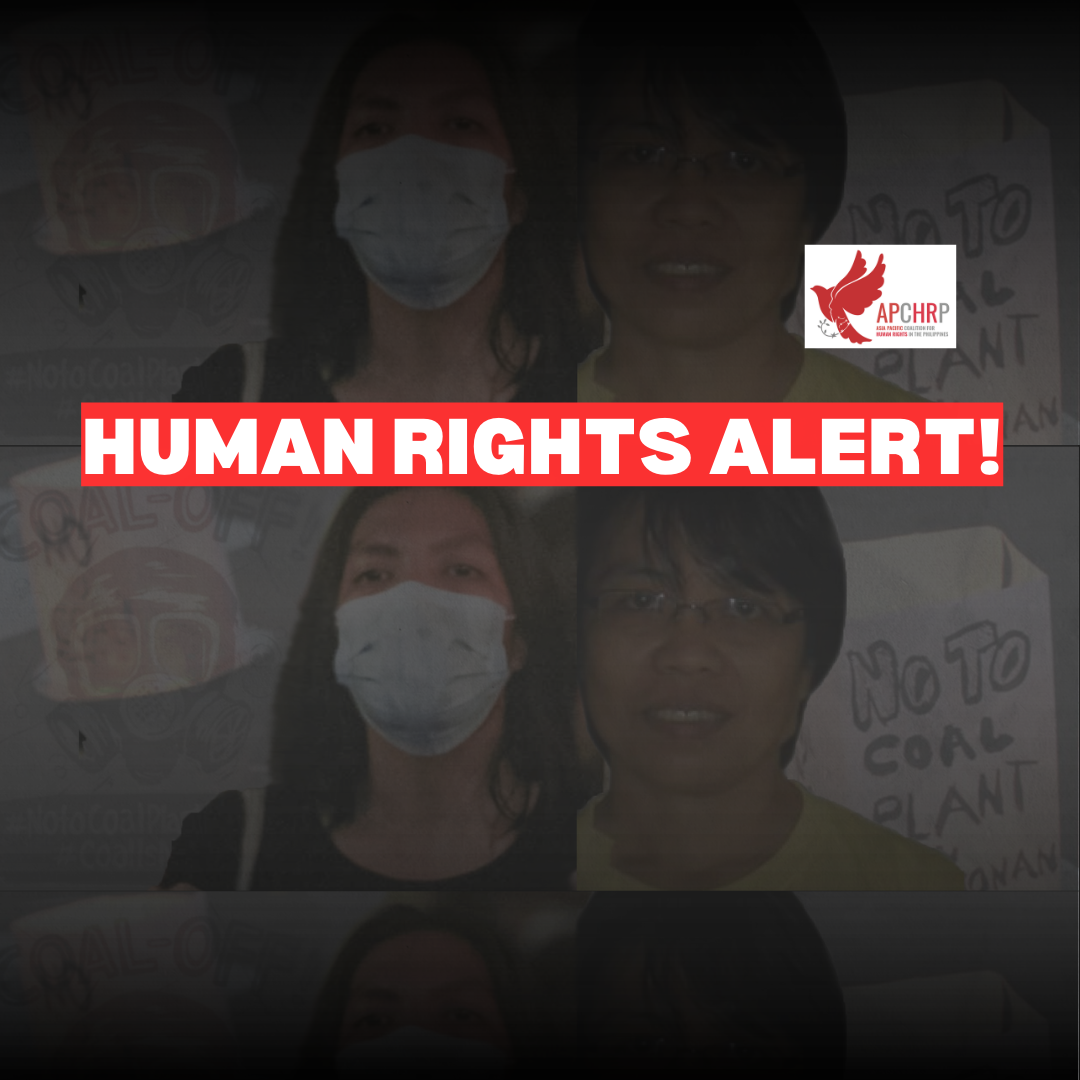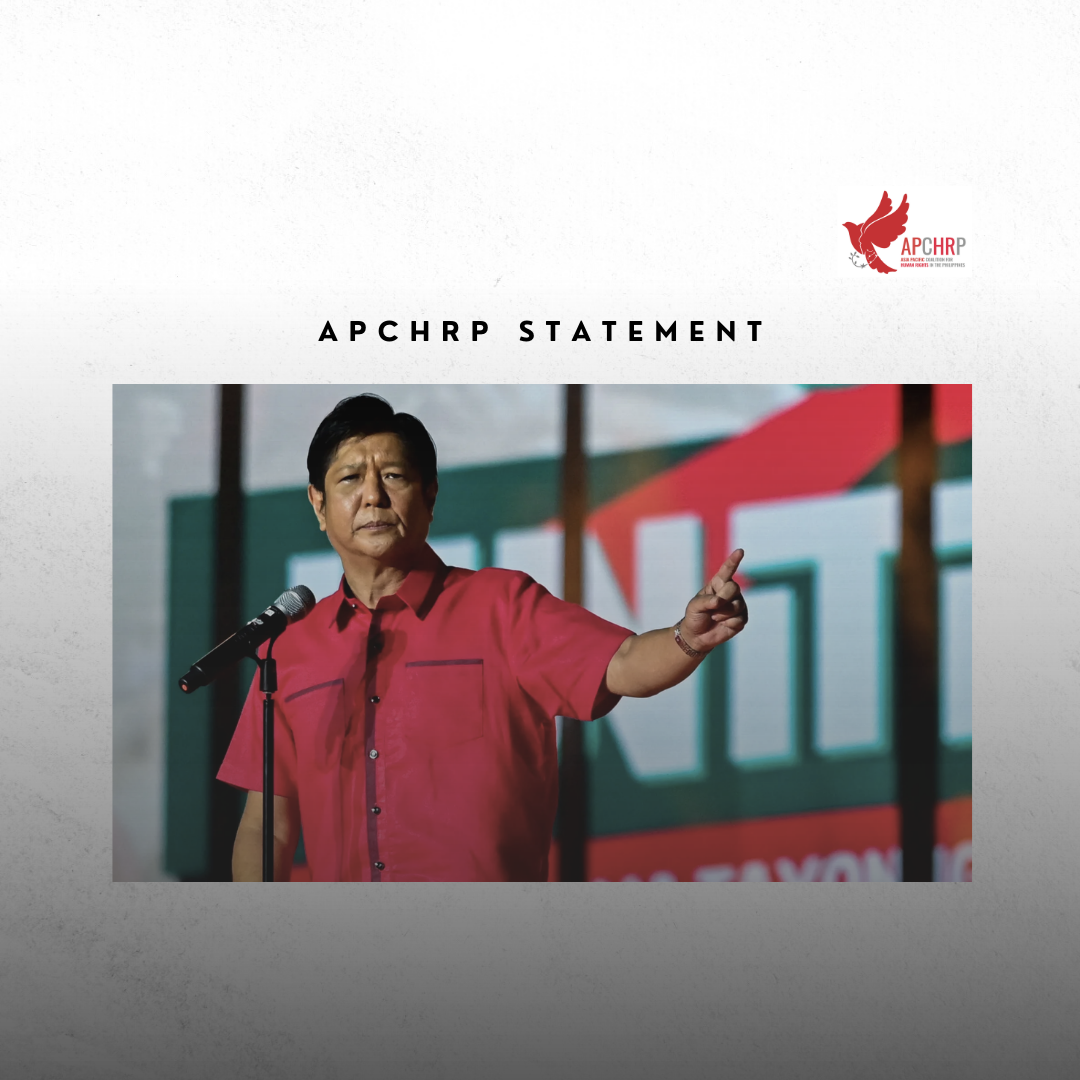Condition of Filipino Prisoners and Some Requests during Cardinal Ambo’s Pastoral Visit to MMDJ Annex 4:
Presented by the Political Prisoners of the Said Detention Facility
By Adelberto Silva
Political Prisoner, Metro Manila District Jail Annex 4
Camp Bagong Diwa, Bicutan, Taguig City
December 26, 2024
The initiative of the Catholic Church in the Philippines, led by Cardinal Ambo David, to give proper attention to the condition of Filipino prisoners at the opening of the Jubilee Year in the country is meaningful. Above all, what Filipino prisoners need is hope — and hope is one of the key themes of the Jubilee Year celebration worldwide.
There are many and serious issues facing Filipino prisoners, currently numbering 171,247, including 757 political prisoners in the country. These prisoners are divided into two categories: 117,850 are still undergoing trial in court while detained in the Bureau of Jail Management and Penology (BJMP) facilities, and 53,397 are convicted prisoners held in the Bureau of Corrections (BuCor) jails.
The primary issue facing Filipino prisoners is the slow pace of justice in the country. The saying “justice delayed is justice denied” is indeed true. Even the severe congestion and overcrowding in prisons are a direct result of delayed justice.
Here at MMDJ Annex 4, cases can take decades to resolve. Just last November, there was a case involving Muslim prisoners that reached its promulgation (or case resolution) only after 21 years of litigation! The convicted prisoners filed an appeal against the decision, and five of them were acquitted — but after having been imprisoned for 21 years, can they truly say they have received justice? Another case reached its promulgation just this December 12, 2024, after 17 years of litigation.
Among the 21 political prisoners here, 19 have been through six years of trial for fabricated cases that continue to this day. While six years may seem short compared to 21 or 17 years, no matter how you look at it, even six years of trial (with no resolution yet) is extremely slow and unjust, especially for cases that are entirely fabricated.
Closely related to the slow progress of justice is the issue of congestion or overcrowding in jails. From 2019 to 2021, the number of prisoners in the BJMP skyrocketed from 95,000 to 165,000. An additional 70,000 prisoners were added due to the Duterte regime’s “tokhang” campaign.
According to the United Nations website, this situation is described as follows: “The Philippines now has one of the most congested prison systems in the world with an overall occupation rate of 322% for pre-trial detainees, ranking close to the Democratic Republic of Congo, Haiti, and Uganda in terms of overcrowding.” From 2022 to 2024, there has been slight progress in addressing this issue, but it remains largely unresolved. The congestion rate in Philippine jails remains alarmingly high.
In addition to these serious problems, Filipino prisoners face insufficient and nutritionally poor food in jails, subpar medical services, and severe restrictions on family visits.
Overall, the issues facing Filipino prisoners are numerous and severe. Sadly, some prisoners are losing hope. While there are no available statistics on the suicide rate in jails, based on experiences here at Annex 4 and the rumors circulating among prisoners, the suicide rate in prisons is high.
During his first pastoral visit to Annex 4, then Bishop Ambo David shared an important experience from Norway, where the orientation of jails is focused on rehabilitation to help prisoners become productive citizens once released. If this kind of approach could be implemented in our country’s jail facilities, it would greatly help prisoners. Instead of just one or occasional vocational courses from TESDA, there could be more systematic training, as well as enhanced Alternative Learning System (ALS) programs, alongside revitalized livelihood projects and training.
We hope that, in various ways, with your help, Cardinal David, we can spread awareness about the many serious issues facing Filipino prisoners, so that we may gather strength to push for reforms in the prison and justice systems, as well as in our continuing pursuit of a just peace in our country.
